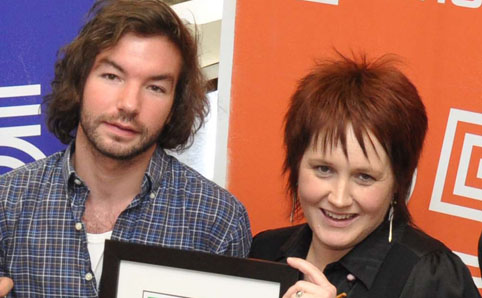Latest News Archive
Please select Category, Year, and then Month to display items
12 October 2020
|
Story Arina Engelbrecht
|
Photo Supplied
 Arina Engelbrecht from Organisational Development and Employee Well-being believes physical activity has a number of benefits for one’s health, including stress relief.
Arina Engelbrecht from Organisational Development and Employee Well-being believes physical activity has a number of benefits for one’s health, including stress relief.
Being physically active plays a big role in preventing the development of mental-health problems and in improving the quality of life of people experiencing mental-health problems.
Treatment for depression
Physical activity can be an alternative treatment for depression. It can be used as a stand-alone treatment or in combination with medication and/or psychological therapy. It promotes all kinds of changes in the brain, including neural growth, reduced inflammation, and new activity patterns are formed that promote feelings of calm and well-being. It releases endorphins – powerful chemicals in the brain that energise your spirit and make you feel good.
Physical activity can be very effective in relieving stress. Research in adults has found that physically active individuals tend to have lower stress levels compared to individuals who are less active. It also leads to improved sleep. When a person sleeps better and feels more rested, overall quality of life improves. They cope better with daily life stressors.
Reduce Alzheimer's risk
Regular physical activity can reduce your risk of developing Alzheimer's disease by up to 50%. It can also slow down further deterioration in those who have already started to develop cognitive problems. It stimulates the brain’s ability to maintain old connections as well as to make new ones.
A study asked people to rate their mood immediately after periods of physical activity (e.g. going for a walk/run, cycling, doing housework) and periods of inactivity (e.g. reading a book or watching television). Researchers found that participants felt more content, more awake, and calmer after being physically active compared to after periods of inactivity.
In conclusion, people who are physically active feel a sense of well-being, feel more energetic throughout the day, sleep better at night, have sharper memories, and feel more relaxed and positive about themselves and their lives.
“Being physically active not only changes your body, it changes your mind,
attitude, and your mood.” – Arina Engelbrecht
Another award proves quality of Architecture
2012-04-13
 |
|
Jurie Swart with Mrs Martie Bitzer, Head of the Department of Architecture.
Photo: Supplied
13 April 2012
|
The Department of Architecture can be proud of its students. Recently, Jurie Swart was honoured as regional winner of the Corobrik Architectural Student of the Year Award. He was also placed second nationally.
Jurie is an architect at the The Roodt Partnership in Bloemfontein.
Corobrik says in a media release: “Tomorrow’s architects set new standards at 25th Corobrik Architectural Student of the Year Awards. Achieving sustainable built environments with low impacts on the natural environment is becoming a universal goal. Energy usage in buildings is under the spotlight. Water-wise projects are most likely to get the go ahead. That is why an in-depth understanding of the environmental constraints and impacts of technologies on architectural solutions is becoming so important for students of architecture. It is the resolution of environmental issues that can be expected to drive architectural expression that will shape tomorrow’s buildings and the creation, extension and redevelopment of our towns and cities.”
Jurie Swart’s project, Borderline – mediated landscape, a Water Research Centre for the University of the Free State (Qwaqwa Campus), explores whether nature and architecture can amalgamate to become a hybrid solution in a vast landscape which has lost its reference to place and time.